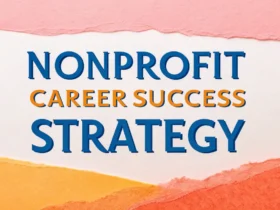Are you a business school graduate with dreams of landing a lucrative and fulfilling sales career? The path to success in sales can seem daunting, but with a well-defined sales career development strategy, you can chart your course and accelerate your growth. This article will provide you with a comprehensive roadmap, packed with actionable steps and insights to help you thrive in the world of sales.
Embarking on a sales career can be a rewarding choice for business graduates. It offers not only financial stability but also opportunities for continuous learning and growth. Let’s dive into crafting a winning strategy.
Defining Your Sales Career Path
Before you start applying for sales positions, it’s essential to define what a successful sales career looks like to you. Different sales roles have varying responsibilities, compensation structures, and levels of client interaction. Taking the time to explore these differences will help you pinpoint the roles that align with your interests and strengths.
Exploring Different Sales Roles
Sales isn’t a one-size-fits-all profession. Several specialized roles cater to different skills and interests. Understanding these roles is the first step in crafting a successful sales career.
-
Business Development Representative (BDR): BDRs are often the first point of contact for potential clients. They focus on outbound prospecting, qualifying leads, and setting up meetings for senior sales professionals. This role is ideal if you enjoy research, communication, and building initial relationships.
-
Account Executive (AE): Account Executives are responsible for closing deals with qualified leads. They manage the entire sales cycle, from product demonstrations to contract negotiations. AEs require strong presentation, negotiation, and closing skills.
-
Sales Manager: Sales Managers lead and mentor a team of sales representatives. They set sales targets, provide training and coaching, and monitor team performance. This role is suitable if you possess strong leadership, communication, and motivational skills.
-
Key Account Manager: Key Account Managers focus on building and maintaining relationships with a company’s most important clients. They ensure customer satisfaction, identify upsell opportunities, and act as a strategic partner. This role requires excellent relationship-building, problem-solving, and strategic thinking skills.
-
Sales Engineer: Sales Engineers provide technical expertise to support the sales process. They demonstrate products, answer technical questions, and customize solutions to meet client needs. If you have a strong technical background and enjoy explaining complex concepts, this role may be a great fit.
Setting Realistic Career Goals
With a clear understanding of available sales roles, it’s time to set achievable goals for your sales career.
-
Short-Term Goals (1-2 years): Focus on skill development and gaining experience. Aim to exceed sales quotas, acquire product knowledge, and build a strong professional network.
-
Mid-Term Goals (3-5 years): Pursue career advancement opportunities, such as taking on leadership roles or specializing in a specific industry or product. Consider obtaining relevant certifications or advanced training.
-
Long-Term Goals (5+ years): Define your ultimate career aspirations. Do you aspire to become a sales director, a VP of sales, or perhaps even start your own company? Establishing long-term goals provides direction and motivation for your ongoing career development.
Developing Essential Sales Skills
Success in sales hinges on mastering a core set of skills. These skills will enable you to connect with clients, navigate objections, and close deals effectively.
Mastering Communication Skills
Good communication is the cornerstone of any successful sales career. The ability to communicate clearly, concisely, and persuasively is vital for building rapport, understanding client needs, and conveying the value of your product or service.
-
Active Listening: Pay close attention to what your prospects say, both verbally and nonverbally. Show empathy and demonstrate that you understand their concerns and challenges.
-
Verbal Communication: Articulate your ideas with clarity and confidence. Tailor your language to your audience and avoid using jargon or technical terms that they may not understand.
-
Written Communication: Craft persuasive emails, proposals, and presentations. Ensure your writing is error-free and conveys your message effectively.
Honing Persuasion and Negotiation Skills
Persuasion and negotiation are key to closing deals and achieving favorable outcomes for both you and your client.
-
Understanding Persuasion Techniques: Explore different persuasion techniques, such as reciprocity, scarcity, and social proof. Learn when and how to use these techniques ethically to influence decision-making.
-
Negotiation Strategies: Develop a deep understanding of negotiation strategies, such as win-win negotiation and principled negotiation. Prepare thoroughly, know your bottom line, and be willing to compromise.
-
Handling Objections: Objections are a natural part of the sales process. Learn how to anticipate and address common objections effectively. Use a structured approach, such as acknowledging the objection, asking clarifying questions, and providing compelling evidence to overcome the objection.
Enhancing Product Knowledge
Comprehensive product knowledge is paramount to establishing credibility and effectively addressing client needs.
-
In-Depth Understanding: Go beyond the basics and gain an in-depth understanding of your product or service. Know its features, benefits, and potential applications.
-
Competitive Analysis: Study your competitors’ products or services. Understand their strengths and weaknesses, and identify opportunities to differentiate your offering.
-
Continuous Learning: Stay up-to-date with the latest product developments and industry trends. Attend training sessions, read industry publications, and engage with product experts.
Building Relationship-Building Skills
Sales is a relationship-driven profession. Building strong, lasting relationships with clients is key to generating repeat business and referrals.
-
Empathy and Rapport: Show genuine interest in your clients’ needs and challenges. Build rapport by finding common ground and demonstrating empathy.
-
Trust and Credibility: Establish trust by being honest, transparent, and reliable. Follow through on your commitments and always act in your clients’ best interests.
-
Networking: Cultivate a strong professional network. Attend industry events, join relevant online communities, and connect with potential clients and partners.
Improving Time Management
Effective time management is critical for maximizing productivity and achieving sales targets.
-
Prioritization: Identify your most important tasks and prioritize them accordingly. Focus on activities that generate the greatest impact on your sales goals.
-
Organization: Develop a system for managing your leads, contacts, and appointments. Use tools like CRM software, calendars, and to-do lists to stay organized.
-
Eliminating Distractions: Minimize distractions and interruptions. Set aside dedicated time for focused work and avoid multitasking.
Creating a Professional Brand
In today’s competitive market, building a strong professional brand can differentiate you from other sales professionals and attract potential employers.
Optimizing Your Online Presence
Your online presence is often the first impression you make on potential employers. It’s essential to ensure that your online profiles are professional, accurate, and showcase your skills and experience.
-
LinkedIn Profile: Optimize your LinkedIn profile with a professional headshot, a compelling summary, and a detailed description of your sales experience and accomplishments.
-
Professional Website or Blog: Create a professional website or blog to showcase your sales expertise and thought leadership. Share insights, case studies, and articles that demonstrate your understanding of the sales process and your ability to deliver results.
-
Social Media Engagement: Engage in relevant conversations on social media platforms like Twitter and LinkedIn. Share your insights, comment on industry articles, and connect with potential clients and employers.
Networking Effectively
Networking is a vital tool for building relationships, generating leads, and identifying career opportunities.
-
Attending Industry Events: Attend industry conferences, trade shows, and networking events. Prepare a brief elevator pitch to introduce yourself and your skills to potential contacts.
-
Joining Professional Organizations: Join professional sales organizations, such as the Association of Sales Professionals or the Sales Management Association. These organizations provide networking opportunities, training resources, and access to industry insights.
-
Leveraging Your Alumni Network: Tap into your business school alumni network. Attend alumni events, connect with alumni on LinkedIn, and reach out for mentorship and career advice.
Building a Strong Resume and Cover Letter
Your resume and cover letter are your marketing materials. They should highlight your skills, experience, and accomplishments in a way that captures the attention of potential employers.
-
Resume: Tailor your resume to each specific job application. Highlight the skills and experience that are most relevant to the position. Quantify your accomplishments whenever possible, using metrics like sales growth, quota attainment, and new client acquisition.
-
Cover Letter: Write a compelling cover letter that demonstrates your passion for sales and your understanding of the company’s products, services, and target market. Highlight your key skills and experiences, and explain why you’re the ideal candidate for the position.
Strategies for Landing Your First Sales Job
With a strong skillset and professional brand in place, you’re ready to launch your job search. Effective job search strategies can significantly increase your chances of landing your first sales job.
Targeting the Right Companies
Not all companies are created equal. Targeting companies that align with your values, interests, and career goals is essential for long-term success.
-
Researching Potential Employers: Research companies in your target industry. Explore their websites, read industry news articles, and check their Glassdoor reviews to gain insights into their culture, values, and employee satisfaction.
-
Identifying Growth Opportunities: Look for companies that are experiencing rapid growth or expanding into new markets. These companies often offer more opportunities for career advancement and skill development.
-
Networking with Insiders: Reach out to your network and connect with employees at your target companies. Ask for informational interviews to learn more about the company culture, sales process, and career opportunities.
Preparing for Sales Interviews
Sales interviews are a chance to showcase your skills, personality, and enthusiasm for sales. Thorough preparation can make a huge difference in your performance.
-
Practicing Common Interview Questions: Practice answering common sales interview questions, such as “Why are you interested in sales?”, “What are your strengths and weaknesses?”, and “Tell me about a time you overcame a difficult objection.”
-
Preparing Questions to Ask: Prepare thoughtful questions to ask the interviewer. This demonstrates your interest in the company and the position. Ask about the sales team culture, the company’s sales process, and the opportunities for professional development.
-
Conducting Mock Interviews: Practice your interviewing skills with a friend, mentor, or career counselor. This will help you identify areas for improvement and build your confidence.
Demonstrating Your Sales Aptitude
During the interview process, it’s crucial to demonstrate your aptitude for sales. Showcase your skills, personality, and enthusiasm in a way that resonates with the interviewer.
-
Highlighting Relevant Skills: Highlight the skills and experiences that are most relevant to the position. Emphasize your communication, persuasion, negotiation, and relationship-building skills.
-
Sharing Success Stories: Share specific examples of your past successes. Describe situations where you exceeded sales targets, overcame objections, or built strong relationships with clients.
-
Displaying Enthusiasm and Confidence: Show genuine enthusiasm for sales and confidence in your ability to succeed. Let your personality shine through and demonstrate your passion for helping clients solve their problems.
Continuous Professional Development
A sales career demands continuous learning and adaptation. Investing in your ongoing professional development will ensure that you stay ahead of the curve and remain competitive in the ever-evolving sales landscape.
Staying Updated with Industry Trends
The sales landscape is constantly changing. Staying informed about the latest industry trends, technologies, and best practices is essential for maintaining a competitive edge.
-
Reading Industry Publications: Subscribe to industry publications, such as Sales & Marketing Management, Selling Power, and Harvard Business Review. These publications provide valuable insights into emerging trends, sales strategies, and best practices.
-
Following Industry Influencers: Follow influential sales professionals and thought leaders on social media. Engage with their content, participate in discussions, and learn from their experiences.
-
Attending Webinars and Conferences: Attend industry webinars and conferences. These events offer opportunities to learn from experts, network with peers, and discover new technologies and strategies.
Seeking Mentorship and Coaching
Mentorship and coaching can provide invaluable guidance, support, and accountability. Seek out experienced sales professionals who can offer advice, share their experiences, and help you navigate the challenges of a sales career.
-
Finding a Mentor: Identify experienced sales professionals whom you admire and respect. Reach out to them and ask if they would be willing to serve as your mentor.
-
Seeking Coaching: Consider hiring a sales coach. A coach can provide personalized guidance, help you identify areas for improvement, and hold you accountable for achieving your goals.
Pursuing Certifications and Advanced Training
Relevant certifications and advanced training can enhance your credibility, validate your skills, and demonstrate your commitment to professional development.
-
Sales Certifications: Pursue industry-recognized sales certifications, such as the Certified Sales Professional (CSP) or the Certified Inside Sales Professional (CISP).
-
Advanced Training Programs: Enroll in advanced sales training programs. These programs provide in-depth instruction on sales strategies, negotiation techniques, and customer relationship management.
Navigating Challenges and Setbacks
A sales career comes with its fair share of challenges and setbacks. Developing resilience, adaptability, and a positive mindset is key to overcoming these obstacles and achieving long-term success.
Dealing with Rejection
Rejection is an inevitable part of the sales process. Learning how to handle rejection constructively can prevent it from derailing your motivation and performance.
-
Reframing Rejection: Reframe rejection as a learning opportunity. Analyze what went wrong, identify areas for improvement, and use the experience to refine your approach.
-
Maintaining a Positive Attitude: Cultivate a positive mindset. Focus on your successes, celebrate your accomplishments, and remember that every “no” brings you closer to a “yes.”
-
Seeking Support: Talk to your colleagues, mentor, or coach about your rejections. Sharing your experiences and seeking support can help you cope with the emotional impact of rejection and maintain your motivation.
Adapting to Changing Market Conditions
The sales landscape is constantly evolving, and sales professionals must be adaptable to changing market conditions, new technologies, and shifting customer needs.
-
Staying Agile: Be willing to adapt your sales strategies and tactics to meet the changing needs of your clients and the market. Embrace new technologies and tools that can improve your efficiency and effectiveness.
-
Continuous Learning: Invest in ongoing training and development to stay ahead of the curve. Learn about new sales methodologies, technologies, and market trends.
-
Seeking Feedback: Solicit feedback from your clients and colleagues. Use their insights to identify areas where you can improve your performance and adapt to changing market conditions.
Maintaining Work-Life Balance
A sales career can be demanding, and maintaining a healthy work-life balance is crucial for long-term well-being and success.
-
Setting Boundaries: Set clear boundaries between your work and personal life. Establish a schedule that allows you to dedicate time to both your career and your personal interests.
-
Prioritizing Self-Care: Make self-care a priority. Engage in activities that help you relax, recharge, and reduce stress, such as exercise, meditation, or spending time with loved ones.
-
Seeking Support: Don’t be afraid to ask for help when you need it. Delegate tasks, seek support from your colleagues or manager, and prioritize your mental and physical health.
Is the Sales Path Right for You?
Landing a role in sales can be both challenging and rewarding. By understanding the different sales roles, you can better determine which matches your goals, interests, and skills. Continuous learning and development will help you remain competitive, while strategies to navigate challenges and maintain work-life balance will contribute to your well-being. Embrace this journey, and you can shape a fulfilling and successful sales career.















Leave a Reply
View Comments